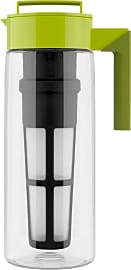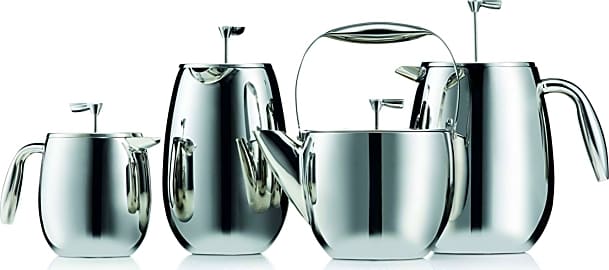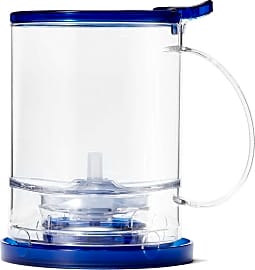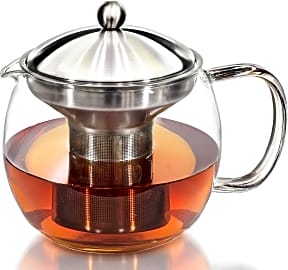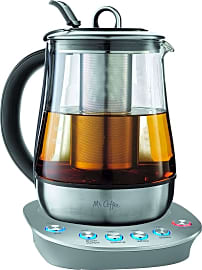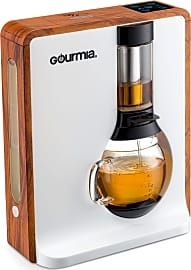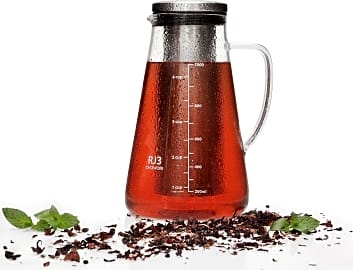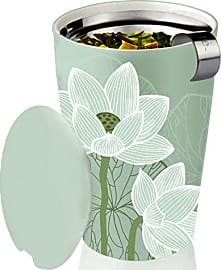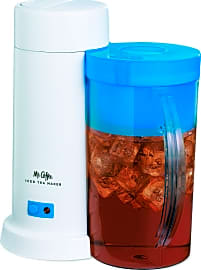The 10 Best Tea Makers

This wiki has been updated 42 times since it was first published in March of 2015. If there's one thing that unites people from all cultures, it's a belief that you, and only you, know how to make the perfect cup of tea. Now you can finally prove all the doubters wrong, thanks to one of these tea makers, which allow you to brew a delicious hot pot or iced pitcher in a few minutes. We've included both electric and non-electric models. When users buy our independently chosen editorial selections, we may earn commissions to help fund the Wiki.
Editor's Notes
March 28, 2019:
Ask 100 people what the best tea maker is and you're likely to get 100 different responses, but we've looked for those that have several things in common, including durability, ease of use, and versatility. When it comes to these factors, it's still hard to beat the Breville One-Touch and the Takeya Flash Chill. The Breville model is the more souped-up choice, giving you tons of control over temperature and time. The Takeya is much simpler and made to go in the fridge, but at about a foot tall, it requires a shelf that isn't too short. We added the Bodum Columbia as a top choice, as well; it's for coffee or tea, which makes buying multiple appliances unnecessary for those who love these hot beverages equally. For those who want only one cup at a time, we chose the Tea Forté Kati Cup. It's eye-catching, no trouble to clean, and perfect for enjoying hot tea away from home. The designs are on the more delicate, twee side, though, so it's definitely not for everyone. Finally, after some consideration, we decided to keep the Mr. Coffee 2-Quart. Most agree that the newer version does not live up to the old, and it's not going to please true tea snobs, but on the plus side, it's quite a bit less expensive than most other electric models.
Welcome To The Tea Party
I may not be British, but I always felt like I had a specific time of the day during which I couldn't live without a little hot tea.
I may not be British, but I always felt like I had a specific time of the day during which I couldn't live without a little hot tea. For one reason or another, a cup of tea became a necessary part of my nighttime routine, usually paired with a few, or a whole sleeve's worth of, Oreo cookies. It was as much a psychological, behavioral habit as it was anything else, and though I've moved on from Oreos, I've retained the habit of enjoying a cup of tea before bed.
Whenever you like your tea, having it ready quickly and easily is best. I love a good loose tea as much as the next drinker, but I'm also well aware of the difficulties that those little balls and hinged spoons designed for steeping present. There's always a bit of tea that gets through, and you have to deal with very hot metal apparatuses when the steeping finishes. It's all too much.
So, I gravitated toward fancier tea bags that made for a better cup of tea, but they were insanely expensive compared to good quality loose tea in large quantities. That's when I got my hands on a tea maker.
All of the tea makers on our list steep tea, most often in a small cylindrical chamber outfitted with very tiny holes or a run of incredibly fine metal mesh. The chambers hold the tea beautifully while keeping it from directly entering the chamber where your hot water sits.
Most of the makers here also heat up the water for you, a few of them with specific programs to take the guess work out of the perfect cup of tea. They employ a heating coil similar to what you might find on an electric stove or in a simple electric kettle, but it's kept safely separated from the water, and you can set it to temperatures ideal for individual teas.
Make Tea While The Sun Shines
If you're a morning person, you greet the day with instant energy, a bright, beaming smile, and a level of tranquility and gratitude akin to the Dalai Lama. Shame on you. For the rest of us, we need caffeine. A lot of folks get it from coffee, and they're welcome to enjoy their slave-trade java with its pH balance more acidic than any soda. We'll keep our soothing, socially conscious brew.
How you go about brewing that tea is up to you, and the differences between and among the tea makers on our list present great analogues for the brewer in question.
How you go about brewing that tea is up to you, and the differences between and among the tea makers on our list present great analogues for the brewer in question.
For example, there are traditional brewers for purists, which make small batches of tea in simple containers of glass and metal. There are also highly advanced models for the scientifically minded tea drinker. You can program these machines to heat water to within a tenth of a degree Fahrenheit, so different teas that require specific temperatures to unlock their full flavor profiles can meet your refined tastes.
Then, there are the practical tea makers, which come in a few shapes and sizes. If you want something fast, functional, and easy, these are the makers for you. They're also particularly good for larger households, as a few of them boast much larger capacities than the more nuanced models.
Beware the materials used in some of these makers, though. BPA is a significant threat, and any plastic implements that contact your drink, be they the water reservoir, the brewing container, or the steeping tools, had better be certified BPA-free, or I'd advise against it.
Imperial Brew
While the exact date that the first human took a sip of brewed tea is impossible to identify, China, tea's country of origin, provides us with a few great origin myths.
In the first, an emperor drinking a bowl water that had just been boiled for sanitation purposes noticed that a few leaves form a nearby tree had blown into the bowl, discoloring the water and creating a light, pleasant taste.
According to the legend, they took root to form the first tea bushes.
An old Buddhist parable states that the founder of Zen Buddhism passed out in the middle of an epic, nine-year meditation, and was so mad at himself when he woke up, so disappointed by his weakness, that he sliced off his eyelids and threw them away. According to the legend, they took root to form the first tea bushes.
Legends like these abound, and it's likely that tea has in origins in ancient southwest China, sometime around the 27th century BCE, though no completely credible record of the brew exists until much later.
Methods for brewing tea have varied through the years almost as much as the tales of tea's origins, from powdered leaves mixed into water by wooden whisks to the mass-produced bags of sanitized mulch propagated by companies like Lipton and Tetley.
It's only been in the past few decades that brewing tea from loose leaves has taken root again among drinkers in the US and Europe, and growing right along with the trend is the popularity of these tea makers.


